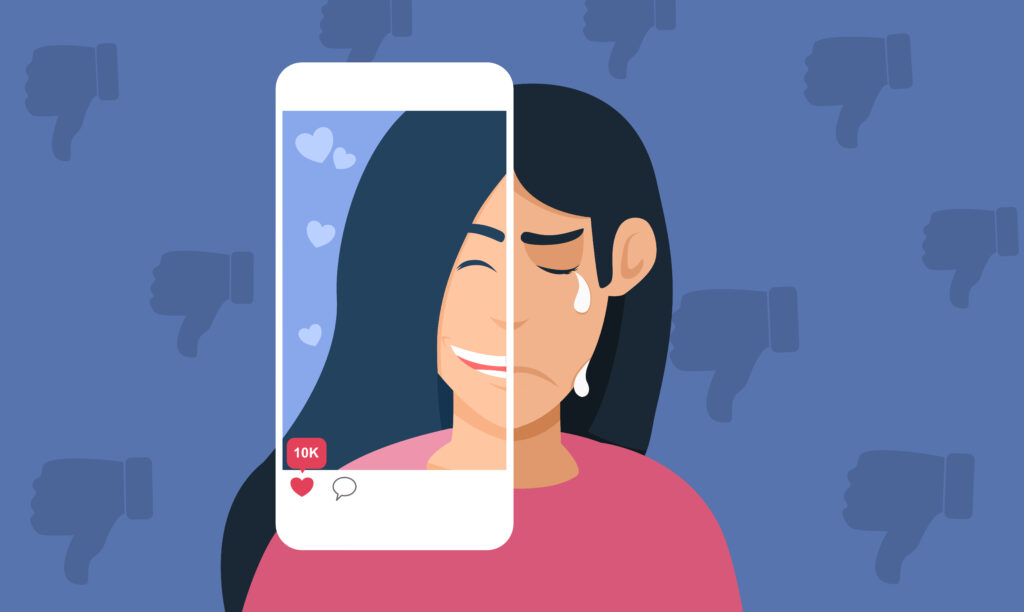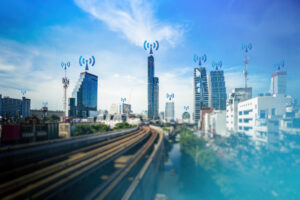As you scroll through your social media feeds, have you considered the impact it may have on your mental health? With over half the global population active on social platforms, our digital lives have become deeply intertwined with our inner worlds. This raises important questions about how we can harness the connective power of social media, whilst protecting our well-being. In this article, we’ll explore the dual faces of social media, examining how it can both harm and heal our minds. Balancing risks with rewards, we’ll consider practical steps users and platforms can take to ensure social media plays a positive role in connecting our minds, not dividing them. Through mindful, compassionate use of these tools, we can nurture social technology that brings people together.
The Good: How Social Media Can Support Mental Health
Connection and Community
Social media allows people to connect across distances and form new friendships and communities. This can help combat feelings of loneliness and isolation, especially for marginalised groups or people with niche interests. Individuals can find like-minded others and form meaningful relationships that transcend geography.
Access to Information and Resources
Platforms provide access to information about mental health issues, treatment options, and self-help strategies. People can connect with others experiencing similar challenges and share what has helped them. Online support groups and forums are available for almost every mental health condition.
Raising Awareness and Reducing Stigma
- By sharing their experiences on social media, individuals can raise awareness of mental health issues and help to reduce stigma. When public figures open up about their own struggles, it shows others that they are not alone and that mental illness is nothing to be ashamed of. Increased understanding and acceptance lead to more people seeking help.
While social media is not a substitute for professional treatment, it can be a powerful supplement. By connecting people and increasing access to resources, social technologies have the potential to support and even improve users’ mental health and well-being. With mindful and balanced use, social media may be harnessed as a force for good.
The Bad: Risks of Social Media on Mental Health

Increased Risk of Depression and Anxiety
- Social media use is associated with increased rates of anxiety, depression and loneliness. Excessive social comparison can fuel feelings of envy, inadequacy and low self-esteem. The curated posts about the lives of others may make you feel like your own life is lacking in comparison.
Sleep Problems and Fear of Missing Out
- Social media use before bed is linked to poorer sleep quality and insomnia. The bright lights and mental stimulation make it harder to fall asleep. Fear of missing out can also keep users constantly checking social media, disrupting their sleep. Lack of sleep is detrimental to both physical and mental health.
Addiction and Distraction
- Social media is designed to keep users engaged for as long as possible. This can lead to addiction and unhealthy distraction from real-world relationships and responsibilities. Some users develop a dependence on the validation and dopamine hits from likes, hearts and retweets. This addiction negatively impacts well-being and productivity.
Online Harassment and Trolling
- Unfortunately, social media also provides opportunities for online harassment and trolling. Cyberbullying, online abuse and exposure to graphic content can have lasting psychological impacts, especially for teens and young adults. The anonymity of the online world emboldens some to behave in cruel ways they never would in person.
While social media does have benefits when used constructively, excessive or unhealthy use poses serious risks to mental health and well-being. Moderation, self-awareness and taking breaks when needed are important for mitigating these effects and maintaining a healthy balance. The key is using social media to enhance your life, not escape from it.
Managing Your Social Media Use for Better Mental Health
Limit Your Usage and Be More Mindful
The excessive use of social media has been linked to increased risks of depression and anxiety. Limit the time you spend on social media platforms and be more intentional with your usage. Disable notifications to avoid constant alerts and temptation. When online, be fully present by avoiding distractions. Focus on connecting with close friends or engaging in discussions around topics that genuinely interest you.
Follow Accounts That Inspire and Uplift You
Curate your social media feeds to follow people and organisations that share uplifting, educational and solution-focused content. Accounts promoting inspirational stories, mental health resources and personal growth can positively influence your wellbeing. Unfollow accounts that make you feel inadequate, angry or sad. Replace them with those promoting self-care, kindness and empowerment.
Share Constructively and Spread Positivity
Use social media to spread more compassion and encouragement. Share content that promotes mental health and wellness. Post uplifting messages and words of kindness. Be mindful of how your posts might affect others. Avoid oversharing personal details or making controversial statements. Your social media use should aim to build others up, not put them down.
Social media is a tool that, when used constructively, can have benefits for both individuals and wider communities. By being more mindful, limiting usage, and using platforms to spread positivity, you can balance the impact of social media on your mental health and even use it to help others. The choice is in your hands. Make it a healthy one.
How Social Media Platforms Can Promote Mental Health
Educating Users
- Social media companies have a responsibility to educate users about responsible technology use and digital well-being. Platforms can develop educational content and resources on topics like managing screen time, identifying and avoiding echo chambers, spotting misinformation, and maintaining real-world social interaction. They can push these resources through in-app messages, blog posts, and partnerships with mental health organisations. Educating users, especially younger ones, is key to promoting long-term mental health and balance in the digital age.
Providing Wellbeing Tools
- Some platforms now offer tools for users to monitor and manage their technology use. For example, smartphone operating systems have screen time trackers, focus modes, and parental controls. Social media apps could adopt similar tools, such as daily time limits, notification management, and temporary account deactivation. Giving users more control and insight into their usage habits encourages balanced and mindful technology use.
Fostering Support Communities
- Social media also has the power to connect people facing mental health issues and create support networks. Some platforms have groups, messaging systems, and forums where people can discuss their experiences, ask for advice, and offer help to others. Moderating these communities and providing mental health resources can help transform social media into a place of understanding and empowerment.
Overall, social media companies should make user well-being a priority by building educational tools, usage management features, and support communities into their platforms. While social media will always have some negative impacts, companies can work to maximise the benefits and help users establish healthy relationships with technology. With time and effort, social media can become a conduit for connection and mental well-being.
The Dual Faces of Social Media on Mental Health: Key Takeaways
Connection and Community
Social media platforms provide opportunities for people to build relationships and connect with others who share their interests or experiences. Staying socially connected and engaged is vital for wellbeing and mental health. For those facing health issues, social media can be a source of social support and help combat feelings of isolation.
Information and Awareness
Social media is a platform for sharing information about mental health conditions, treatments, and resources. Evidence-based information about conditions, symptoms, and self-care strategies can be disseminated to large audiences. Increased mental health literacy and reduced stigma are significant benefits. However, misinformation also spreads rapidly on social media, so users must critically evaluate information.
Anxiety and Distress
While social media can be used to build community and share information, it may also contribute to increased symptoms of anxiety, depression, and loneliness. Exposure to curated posts about the lives of others can fuel social comparison and envy. Fear of missing out and online harassment are other potential harms. Excessive social media use, especially at night, can disrupt sleep, which is essential for well-being and managing mental health conditions.
Responsibility and Balance
The impact of social media on well-being depends on how individuals and platforms choose to use it. With conscious and balanced use, the benefits can be maximised, and harms minimised. For positive outcomes, connect with others in authentic ways, share and seek accurate information, limit time spent passively scrolling, and prioritise self-care like exercise, sleep, and time away from technology. Overall, social media is a tool, and like any tool, it can be used for better or worse depending on the hands that wield it. With wisdom and moderation, social media’s dual faces can be reconciled.
Important reminder
Social media is simply a tool that reflects both the best and worst of human nature. With care and wisdom, we can learn to harness its potential while being mindful of its pitfalls. By cultivating awareness, setting healthy boundaries, and fostering open communication, we can tap into social media’s capacity to connect, support and inspire. Though the path may not always be smooth, if we approach it with compassion for ourselves and others, it can lead us to greater understanding and meaning. The choice is ours: we can allow social media to divide or unite us. Our relationships, mental health and society hang in the balance.
More Stories
Bluesky Reinvents the Blue Check: A Decentralized Take on Digital Trust
In an era where digital trust is critical yet fragile, Bluesky offers a bold new approach to online verification. Bluesky...
Reddit Unleashes Dynamic Product Ads to Capture Shoppers at the Moment of Decision
Reddit has unveiled its latest innovation: Dynamic Product Ads (DPAs). This cutting-edge tool, now available in public beta, empowers advertisers to seamlessly capture the attention of potential buyers at the critical point of decision-making.
Threads Empowers Creators with Multi-Link Bios and Performance Insights
Threads launches multi-link bios and detailed performance insights letting users to enrich their profile with up to five links.
TikTok AI Alive: Breathing Life into Photos with AI-Powered Storytelling
In today’s rapidly changing digital storytelling world, TikTok’s new feature, "AI Alive," opens fresh possibilities for personal media transformation. As...
Alibaba and RedNote Forge Seamless Shopping Path Amid China’s E-Commerce Rivalry
Alibaba and RedNote mark a pivotal shift in consumer experiences. Specifically, Alibaba integrates shopping features into social media content. This move targets RedNote’s vibrant audience and enables a smooth flow from product discovery to purchase.
Agent Hospital: China’s AI Doctors Redefine Global Healthcare Frontiers
China’s “Agent Hospital” emerges as a revolutionary force in healthcare. Developed by Tsinghua University, this groundbreaking facility boasts the world’s first fleet of fully AI-driven medical professionals.


